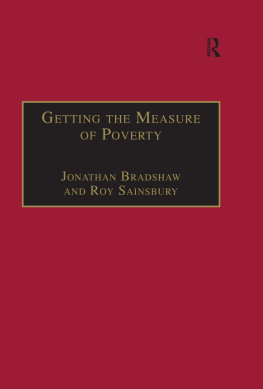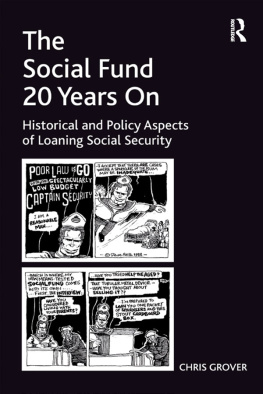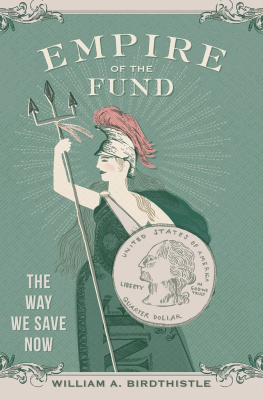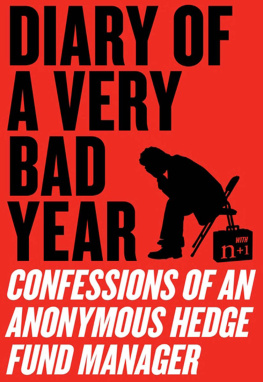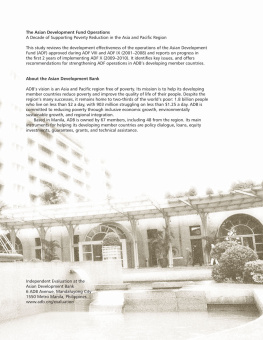Routledge Revivals
The Family Fund
In The Family Fund, first published in 1980, Bradshaw discusses the introduction of The Family Fund- a grant given to families in response of the discovery of the damages caused by the Thalidomide drug. He examines all aspects of the Fund including its origins, aims, publicity and its future. This text is ideal for students of sociology.
First published in 1980
by Routledge & Kegan Paul Ltd
This edition first published in 2015 by Routledge
2 Park Square, Milton Park, Abingdon, Oxon, OX14 4RN
and by Routledge
711 Third Avenue, New York, NY 10017
Routledge is an imprint of the Taylor & Francis Group, an informa business
1980 Jonathan Bradshaw
The right of Jonathan Bradshaw to be identified as author of this work has been asserted by him in accordance with sections 77 and 78 of the Copyright, Designs and Patents Act 1988.
All rights reserved. No part of this book may be reprinted or reproduced or utilised in any form or by any electronic, mechanical, or other means, now known or hereafter invented, including photocopying and recording, or in any information storage or retrieval system, without permission in writing from the publishers.
Publishers Note
The publisher has gone to great lengths to ensure the quality of this reprint but points out that some imperfections in the original copies may be apparent.
Disclaimer
The publisher has made every effort to trace copyright holders and welcomes correspondence from those they have been unable to contact.
A Library of Congress record exists under LC control number: 80040003
ISBN 13: 978-1-138-82189-7 (hbk)
ISBN 13: 978-1-315-74304-2 (ebk)
The Family Fund
An initiative in social policy
Jonathan Bradshaw
First published in 1980
by Routledge & Kegan Paul Ltd
39 Store Street,
London WC1E 7DD
9 Park Street,
Boston, Mass. 02108, USA and
Broadway House,
Newtown Road,
Henley-on-Thames,
Oxon RG9 1EN
Set in Press Roman by
Hope Services, Abingdon
and printed in Great Britain by
Thomson Litho Ltd
East Kilbride, Scotland
Jonathan Bradshaw 1980
No part of this book may be reproduced in
any form without permission from the
publisher, except for the quotation of brief
passages in criticism
British Library Cataloguing in Publication Data
Bradshaw, Jonathan
The Family Fund. (International
library of social policy).
1. Handicapped childrenServices for
Great Britain
2. Economic assistance, Domestic Great
Britain
I. Title II. Series
362.82 HV890.G7 80-40003
ISBN 0 7100 0520 2
The research on the Family Fund was essentially a matter of team work, and without the collaboration of other members of the team, this book would not have been possible. Sally Baldwin and Caroline Glendinning joined me as research fellows. Dorothy Lawton started work as a coder and became a part-time research fellow responsible for the data bank; she has been of particular help in the computation and statistical analyses. Margaret Joyce has diligently coded the details of over 42,000 applicants for the computer, and Jane Weale, Edwina Goodwin, Christopher Hood, and David Phillips collaborated in parts of the analysis. Jeanne Horsfield has played a key role as project secretary throughout. I am also grateful to Liz Wilson and Sue Medd who have typed and retyped drafts, and to John Cook who helped to prepare the manuscript for publication.
Without the cooperation of the staff of the Joseph Rowntree Memorial Trust and the Family Fund, this research would not have been possible. I am most grateful to all the staff, particularly Lewis Waddilove, Robin Huws Jones, and Ralph Connelly from the Trust and Dennis Hitch and Eleanor Barnes from the Family Fund, for their willing co-operation at all times.
The Trust established an advisory committee on the research consisting of Peter Barclay, Lewis Waddilove, Robin Huws Jones, Gerrard Bebb, Elspeth Hope Murray, Walter Henderson, Andrew Dunsire, and Kathleen Jones; I am most grateful for the work they put into reading and commenting on working papers.
I am particularly grateful to Kathleen Jones who encouraged and supported the research project within the department and in the University.
Finally, I am also grateful to the many thousands of families caring for severely handicapped children who have helped in this research. I hope that they more than anyone agree with the conclusions.
On 29 November 1972, Sir Keith Joseph, Secretary of State for the Social Services, announced in Parliament that he would establish a fund of 3 million, to ease the burden of living on those households containing very severely congenitally disabled children. This unexpected announcement was the result of a public campaign on behalf of children damaged by the Thalidomide drug. To administer the Fund, the government bypassed all existing statutory agencies and sought the help of an independent charitable trust the Joseph Rowntree Memorial Trust, based at York. The Trust had no experience of the type of work that would be required, nor any special expertise in the field of child handicap, but with some misgivings it agreed to take on the task of administering the Fund for three years in the first instance.
The Fund was named the Family Fund and began operations in March 1973. In December 1974 its terms of reference were extended to include the non-congenitally disabled and by April 1976, the date on which this study ends, the Fund had received applications from 31,788 families and distributed grants in cash or kind worth 6,827,679. The Fund was established for three years in the first instance, subsequently refinanced until the end of 1978, and is now operating on an open-ended contract.
The Family Fund is a small policy innovation in terms of resources, yet it is nevertheless a particularly interesting subject for research. The manner in which it developed is unusual; it was announced suddenly in response to a crisis; it was devised and established with great rapidity; and the administrative form it took was unprecedented in British social policy. Never before have such large amounts of public money been given to an independent body to distribute directly to the public.
The Joseph Rowntree Memorial Trust recognised the research opportunities presented by the Fund and decided to establish an independent research project at the University of York in order to monitor and evaluate the work of the Fund. In doing this, they gave research workers a most unusual opportunity of observing and evaluating an agency developing from its inception. This opportunity presented by the Trust could not have been brought to a successful conclusion without the active support of the Trusts director, Lewis Waddilove, and the very open way in which the staff of the Trust and the Family Fund responded to the research.


